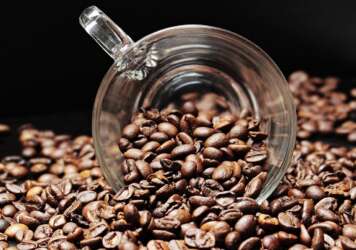Prevention through coffee and tea – strengthening the immune system
You may not realize it, but your daily cup of coffee or tea can help you boost your immune system and fight off disease. Both drinks contain compounds that act as antioxidants and can help fight the effects of free radicals in the body. In this article we will take a closer look at the benefits of coffee and tea for the immune system.
Coffee and the immune system
Coffee contains a compound called polyphenol, which is a powerful antioxidant. Polyphenols protect cells in the body from oxidative stress by scavenging and neutralizing free radicals. Free radicals are unstable molecules that are produced in the body and can damage cells and tissues. High levels of free radicals in the body can weaken the immune system and increase the risk of infection and inflammation.
Studies have shown that consuming coffee can lower the risk of cardiovascular disease and diabetes, both of which can weaken the immune system. A 2018 study published in the journal Nutrients showed that coffee can also reduce inflammation in the body by lowering C-reactive protein (CRP). A high CRP level is a sign of inflammation in the body, which can affect the immune system.
Tea and the immune system
Tea also contains antioxidants, in particular a group of compounds called catechins. These compounds have similar effects to polyphenols in coffee and can help fight free radicals in the body. Tea also contains L-theanine, an amino acid that calms the brain and relieves stress. Stress can weaken the immune system and increase the risk of infections.
A 2020 study published in the journal Phytotherapy Research found that green tea can boost the immune system by increasing the production of antibodies. Antibodies are proteins produced by the immune system to fight pathogens. Another 2017 study published in the journal Food & Function found that consuming tea can lower the risk of cardiovascular disease and cancer, both of which can affect the immune system.
How much coffee and tea should you drink?
The immune system benefits of coffee and tea depend on how much you drink. As a rule, it is recommended to consume no more than 400 milligrams of caffeine per day, which is equivalent to about four cups of coffee. It is also important to note that caffeine content varies in different types of coffee and tea, and that excessive intake of caffeine can have negative effects on the body.
In addition to quantity, it is also important to consider the quality of coffee and tea products. Try to choose organic coffee and tea to ensure they have not been treated with pesticides or other chemicals.
In summary, coffee and tea can help strengthen the immune system and fight disease because of their antioxidants and other compounds. However, it is important to consider the quantity and quality of beverages and maintain a balanced diet and healthy lifestyle to ensure a strong immune system.
Sources:
- Butt, M. S., Sultan, M. T., & Aziz, M. (2015). Coffee and its consumption: benefits and risks. Critical reviews in food science and nutrition, 55(9), 1299-1312.
- Grosso, G., Micek, A., Godos, J., Pajak, A., Sciacca, S., Galvano, F., & Giovannucci, E. L. (2017). Coffee consumption and risk of all-cause, cardiovascular, and cancer mortality in smokers and non-smokers: a dose-response meta-analysis. European Journal of Epidemiology, 32(9), 863-873.
- Leyva-Soto, A., Chavez-Santoscoy, R. A., Lara-Jacobo, L. R., & Gonzalez-Cortazar, M. (2020). Green tea catechins improve the T cell-mediated immunity of high-fat-diet-induced obese mice. Phytotherapy Research, 34(10), 2762-2771.
- Mandel, S. A., Amit, T., & Weinreb, O. (2011). Revisiting the potential therapeutic uses of coffee and its constituents. Pharmacological Research, 63(6), 507-512.
- Tabrizi, R., Saneei, P., Lankarani, K. B., Akbari, M., Kolahdooz, F., Esmaillzadeh, A., & Nadi-Ravandi, S. (2018). The effects of caffeine intake on weight loss: a systematic review and dos-response meta-analysis of randomized controlled trials. Critical Reviews in Food Science and Nutrition, 59(16), 2688-2696.











